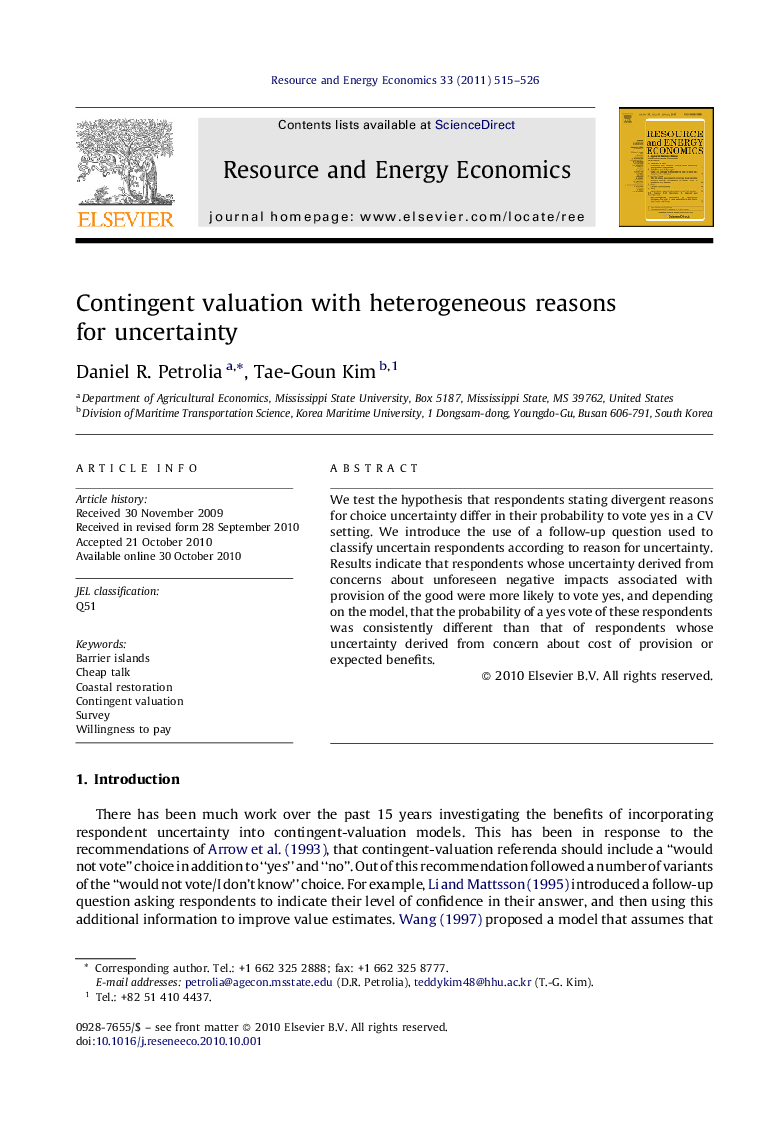| Article ID | Journal | Published Year | Pages | File Type |
|---|---|---|---|---|
| 985583 | Resource and Energy Economics | 2011 | 12 Pages |
We test the hypothesis that respondents stating divergent reasons for choice uncertainty differ in their probability to vote yes in a CV setting. We introduce the use of a follow-up question used to classify uncertain respondents according to reason for uncertainty. Results indicate that respondents whose uncertainty derived from concerns about unforeseen negative impacts associated with provision of the good were more likely to vote yes, and depending on the model, that the probability of a yes vote of these respondents was consistently different than that of respondents whose uncertainty derived from concern about cost of provision or expected benefits.
Research highlights▶ We collect data on reason for uncertainty to model willingness to pay. ▶ Respondents with uncertainty due to negative impacts are more likely to vote yes. ▶ Probability of yes vote depends on reason for uncertainty.
